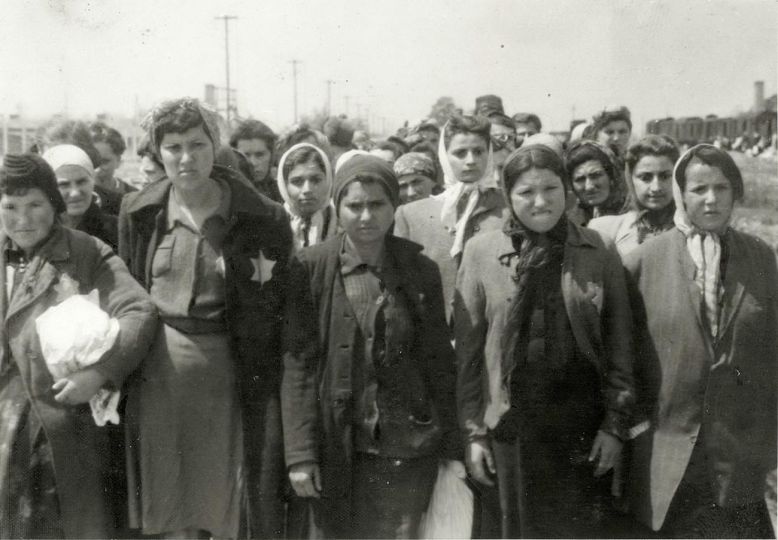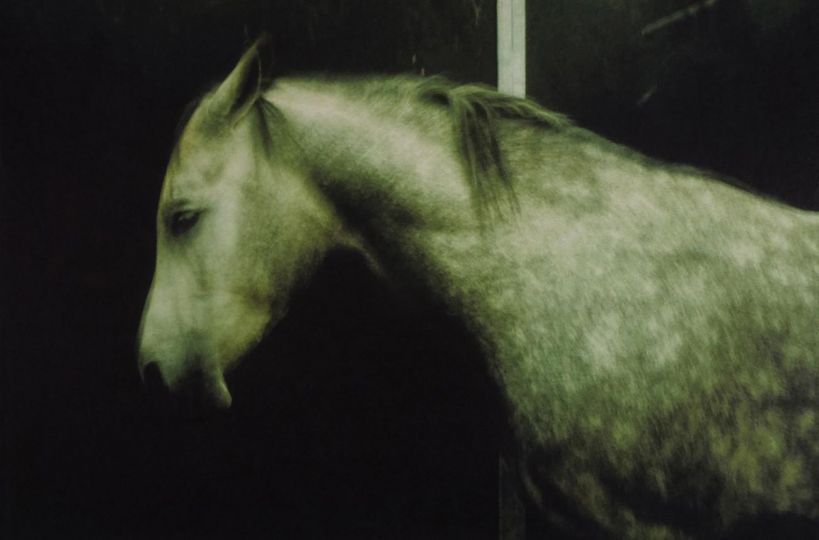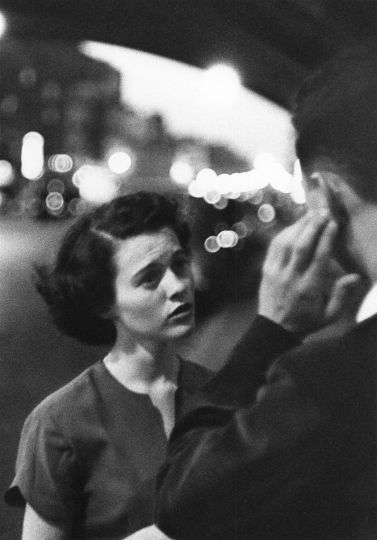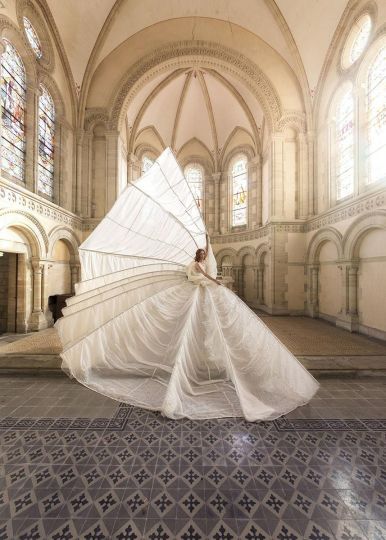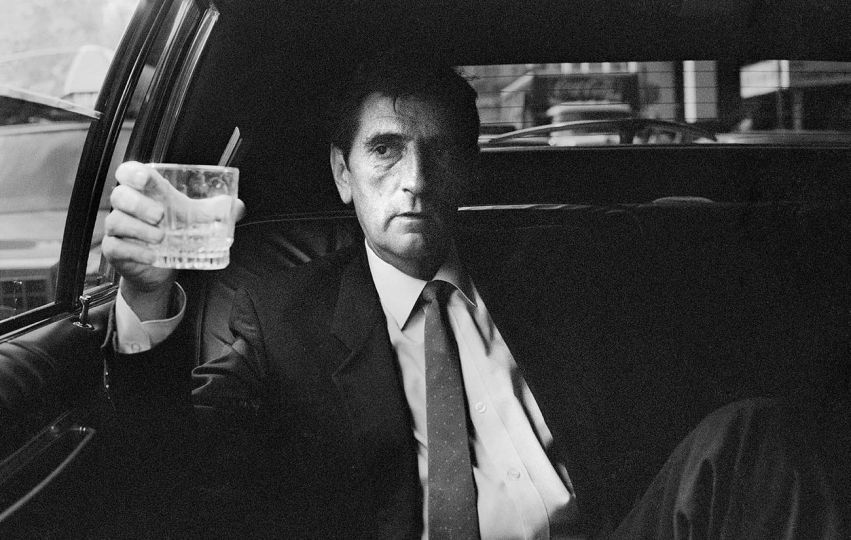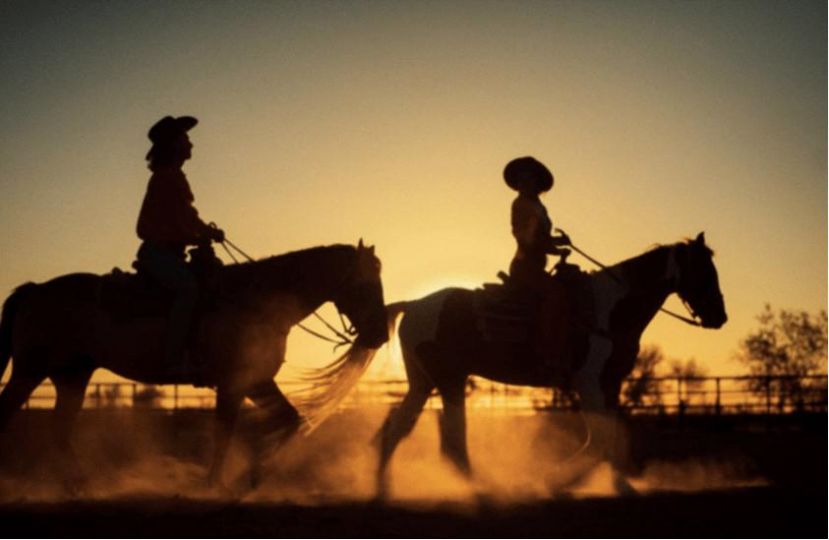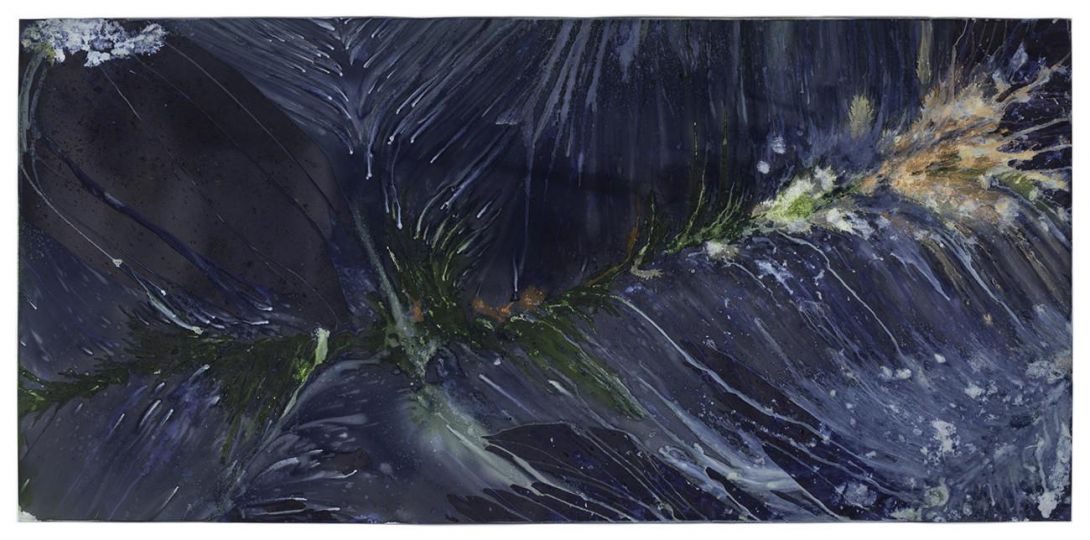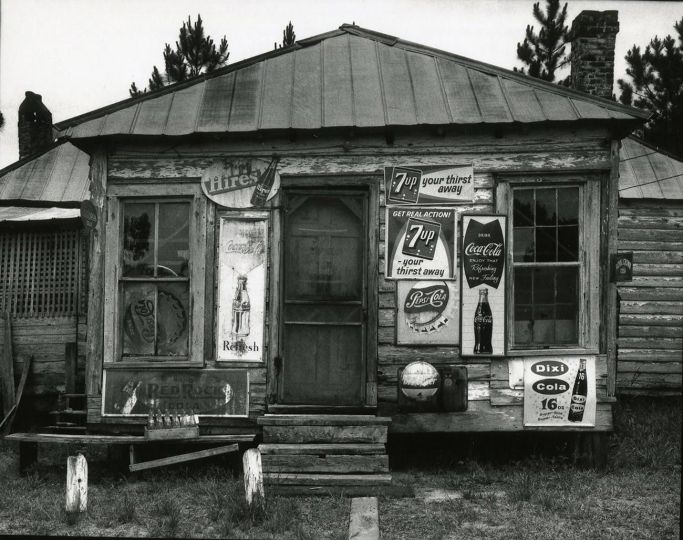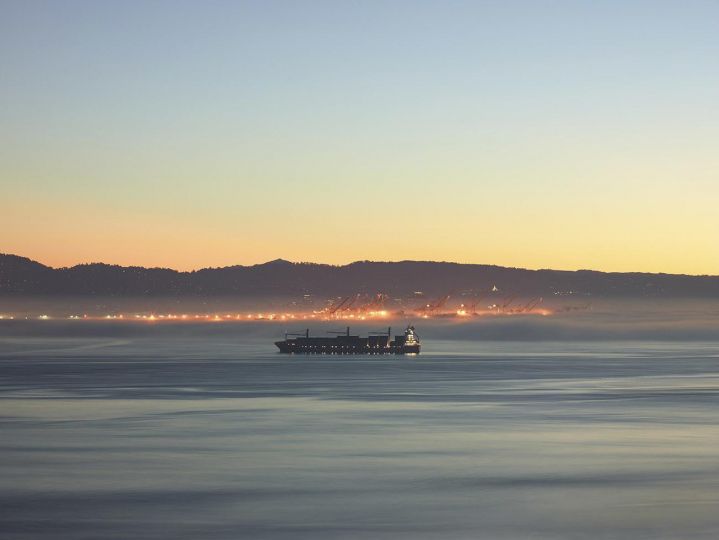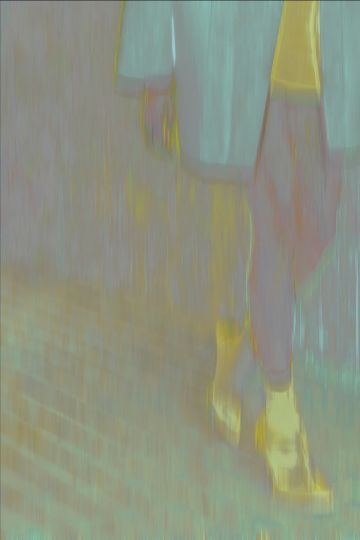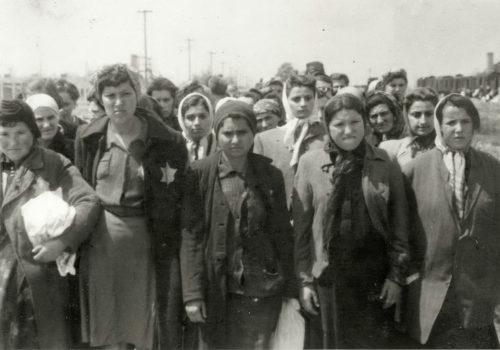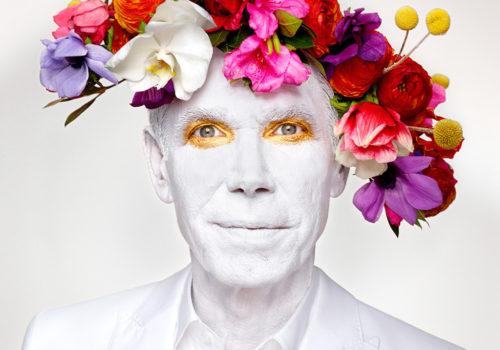Chris Marker, Passenger of time
Chris Marker is not really a photographer. His images are like a film strip cut with scissors. They recount the same story that their creator whispers in a low voice. A story of time that has nothing to do with the one that freezes the click of the shutter. It is by literature that Marker has become a documentarist, a photographer, a filmmaker, a handyman of visual culture.
During the end of the 1940s, Chris Marker swaps his resistant spirit for that of an engaged writer, having only a philosophy degree in his pocket. His existentialist thoughts will never leave him, and he begins by publishing cultural essays, poems, cinema news and critics in the journal Esprit. But the man watches with envy the filmmakers of the Nouvelle Vague revolutionizing their domain.
While filming a documentary on the Olympic games in Helsinki in 1952, he reinvents the concept and introduces subjectivity. The text therefore has more importance, if not more then the image. And it is with Lettres de Sibérie (1958) that Marker truly begins to say what he wants with the images by including three contradictory comments on one same sequence, repeated. Already, the uprising, tainted with incisive humour, is in the works.
Le Photo Novel
The uprising of the Coup d’Etat. When he filmed La Jetée in 1962, Chris Marker had become a filmmaker of words. In this sort of modern diaporama in fixed images and text, Paris is an apocalyptic city that shelters in its underground a few survivors and dark scholars who attempt again to save humanity. The photo novel, which would inspire the american Terry Gilliam with 12 Monkeys (1995), recounting their scientific experiences in order to make worldly voyages in this perturbed planet.
Marker uses his literary talent and his dramatic voice of humanity. The words embrace each other and marry with his photographs. The comments give the images their meaning, their unity, and their eternity. He uses science fiction as a meditation of his time, creating tension with the real and the imaginary, using the present of the enunciation in order make the apology for these dissident impluses. His work questions human tragedies, past, present and future. It denounces nazi barbarianism, inhumanity and the atomic bomb, tyranny of the USSR. It is an opera for the oppressed, the tortured and the exterminated.
All throughout his career, Chris Maker would reuse this process many a time gone over, notably in Si j’avais quatre dromadaires or Le fond de l’air est rouge. He likes to play with memory. « Duration is lived, but Time is thought », wrote Barthélémy Amengual in 1997 in a chronic on the artist. The author is one of the rare persons who knew how to cut through the enigma of Chris Marker, the one that made him give up his mobile images. « The challenge of La Jetée was to put cinema in contradiction with its means, to be constrained to go beyond its esthetic limits, to trick its codes, to force it to deny itself in its essence, and then to claim all of a sudden in this magical instant that made the glory of the film : a moving photo ! Where cinema, traditionally, affirms « this is and becomes », where the photo says « this was », or even « that is still, but frozen in a crux of Time », the film of Marker, with its solo off and the provocative immobility of its images, says « this is, will be and was » all at the same time.
The timeless exile
“I write to you from a distant country”, intones the voice in the overture of the video on Siberia. Chris Marker is a globe trotting artist. His famous verses from Henri Michaux will be engraved in memory. Solitary, attentive to the evolution of ideas, men, and the world, the artist has knocked just about everywhere –Korea, Cuba, China, Israel-, always where he should be. His pseudonym is a way to be understood by everybody. “My name can be pronounced in any language, nothing else to look for”, he states.
Of all the countries he has been to, Japan remains a singular place. Marker has devoted a first work in 1965 with Mystère Koumiko, that was shot again during the Olympics. Japan ended the war wounded and its new generations took advantage of the event to show the rest of the planet their modernity. Chris Marker loses himself consciously and wanders into the unknown, through a feminine character, as in many of his films.
Similarly in Sans Soleil (1983), long version and better known of this space and time voyage into the imaginary. His Japan is changing, between old traditions and advanced technology. “Tokyo is a city of trains, sowed with electric cables, it shows its veins”. There he finds faces of sleepers, then in getting into the open air he finds the illuminated billboards, signs, an owl, and of course, cats almost everywhere, in gardens, on walls, in the parks. A self portrait, as the others, shows personal questioning, philosophical reflections and sympathy for the cultural revolution.
Hidden
Just as many of the survivors in La Jetée, Chris Marker the red is a revolutionary that does not show himself. A few interviews and photographs of himself. A possible image of a cat when insisted to. In Memories of the Future (2005), Catherine Lupton describes his Parisian apartment as somber, letting hardly any daylight in. The man stays fixed on the TV screens when they are not controlling his coming and going. It is easy to imagine this crazy savant that he has shot, round telescopic glasses, while inspecting the images that will serve to depict the stories of this world.
And as “the most famous of the unknown filmmakers” returns to work, he will squeeze himself in the underground, in this case, the Parisian metro. Passengers, his last work to date, again tries to shake the habits. All possible digital effects, uniformity of images, symbolic absence, this time, beautiful words in the puzzle. Chris Marker, 90 years old, does not look for the future of photography or documentary. With him, images – no matter their quality – transform themselves into “memories of the future”. He hears the past, takes his time to see and listen to the present, he is a man who thinks.
Jonas Cuénin
Chris Marker is the subject of a large retrospective this year in Arles.
From July 4th through September 18th, 2011, Palais de l’Archévêché
8 Boulevard Lices
13200 Arles
04 90 43 35 10


